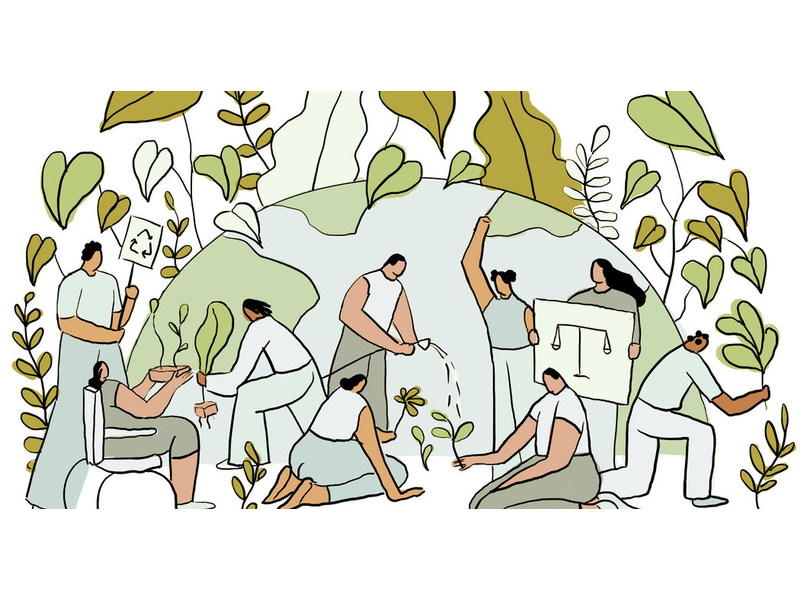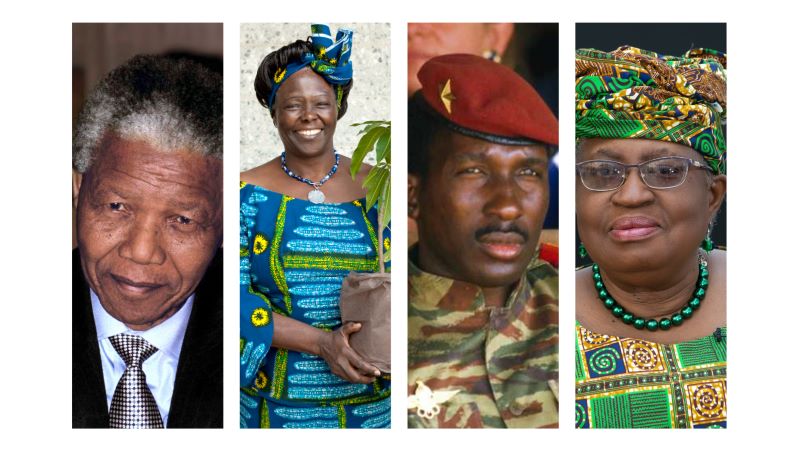World Environment Day is celebrated every year on June 5. The theme of this year’s World Environment Day is “Ecosystem Restoration”. Ecosystem restoration can take many forms such as growing trees, greening cities, rewilding gardens, changing diets, or cleaning up rivers and coasts. This is the generation that can make peace with nature. We’re highlighting five Black environmentalists who are using their work, research, and experience to not only change the world but possibly save it.
Dorceta Taylor
Dr. Dorceta Taylor, an environmental sociologist, historian, writer, and academic, is well-known for her extensive work on environmental justice. In 1991, she became the first-ever Black woman to receive a doctoral degree from Yale University’s School of Forestry and Environmental Studies. In 2018, she developed a report, The State of Diversity in Environmental Organizations, which focused on gender, racial, and class diversity within NGOs, foundations, and government agencies. Taylor’s 2014 book Toxic Communities examines the impact of environmental racism on poor and minority neighborhoods.
She’s currently a professor at the Yale School for the Environment, and prior to that, she was a professor of environmental sociology at the University of Michigan’s School for Environment and Sustainability (SEAS) for 27 years. Taylor’s research has ranged over environmental history, environmental justice, environmental policy, leisure and recreation, gender and development, urban affairs, race relations, collective action and social movements, green jobs, diversity in the environmental field, food insecurity, and urban agriculture.

Ibrahim Abdul-Matin
Ibrahim Abdul-Matin is the author of Green Deen: What Islam Teaches About Protecting the Planet and is the co-founder of Green Squash Consulting which is a management consulting firm based in New York. Green Squash Consulting works with people, organizations, companies, coalitions, and governments committed to equity and justice and specializes in dynamic strategic and focused stakeholder management and partnership development.
Abdul-Matin is a former adviser to the New York City Mayor’s Office of Long Term Planning & Sustainability. He sits on the board of the International Living Future Institute that encourages the creation of a regenerative built environment and Sapelo Square whose mission is to celebrate and analyze the experiences of Black Muslims in the United States. His writing has appeared in The Washington Post, CNN.com, The Daily Beast, GOOD Magazine, ColorLines, Wiretap, and Elan Magazine.

Ayana Elizabeth Johnson
Dr. Ayana Elizabeth Johnson is a marine biologist, policy expert, writer, and Brooklyn native. She is a founder of the non-profit think tank Urban Ocean Lab, co-founder of the climate initiative The All We Can Save Project, and co-host of the podcast How to Save a Planet. Recently, Johnson co-authored the Blue New Deal, a roadmap for including the ocean in climate policy. Previously, as executive director of the Waitt Institute, she co-founded the Blue Halo Initiative and led the Caribbean’s first successful island-wide ocean zoning effort, protecting over a third of Barbudian coastal waters.
In 2019, Johnson gave a TED talk on parrot fish, coral reefs, and the impact of climate change on ocean environments. In a 2020 article for The Washington Post, Johnson described the inevitable intersection of racial justice and climate justice and wrote about the urgent need for active and vigilant anti-racism within the environmentalist movement, specifically from white activists. She is on the 2021 Time 100 Next List and was named one of Elle’s 27 Women Leading on Climate.

Robert Bullard
Professor Robert D. Bullard is often described as the father of environmental justice. He was the former Dean of the Barbara Jordan-Mickey Leland School of Public Affairs at Texas Southern University 2011-2016. Bullar is currently a Distinguished Professor of Urban Planning and Environmental Policy and has written a total of 18 books on various topics from sustainable development to climate justice.
In 2018, the Global Climate Action Summit named Bullard one of 22 Climate Trailblazers, and in 2020, WebMD gave him its Health Heroes Trailblazer Award. The UN Environmental Programme (UNEP) has also given him a Champions of the Earth Lifetime Achievement Award. His book Dumping in Dixie: Race, Class, and Environmental Qualitybecame a landmark environmental justice text. Bullard has remained a leading campaigner against environmental racism throughout his career, focusing primarily on the American South.

Kari Fulton
Kari Fulton is an award-winning Environmental and Climate Justice, organizer, writer, and historian. She has worked with various domestic and global coalitions to coordinate campaigns and national conferences including Power Shift, the largest youth climate summits in the United States, and the People’s Climate March. She has traveled to Europe, Latin America and South Africa attending and reporting on international environmental conferences.
Fulton calls her generation “Generation Why Not?” and works to mobilize them by building awareness of the connection between environmental and social justice issues. She led the youth campaign for the Environmental Justice and Climate Change (EJCC) initiative of the United Nations and co-founded “Loving Our City, Loving Ourselves,” a campus and community initiative that builds solidarity on issues of concern. In her capacity at EJCC, Fulton trains hundreds of young people at more than 50 universities, particularly students of color at historically Black colleges, about the importance of building a green movement.

Source

Boitumelo Masihleho is a South African digital content creator. She graduated with a Bachelor of Arts from Rhodes University in Journalism and Media Studies and Politics and International Studies.
She’s an experienced multimedia journalist who is committed to writing balanced, informative and interesting stories on a number of topics. Boitumelo has her own YouTube channel where she shares her love for affordable beauty and lifestyle content.





